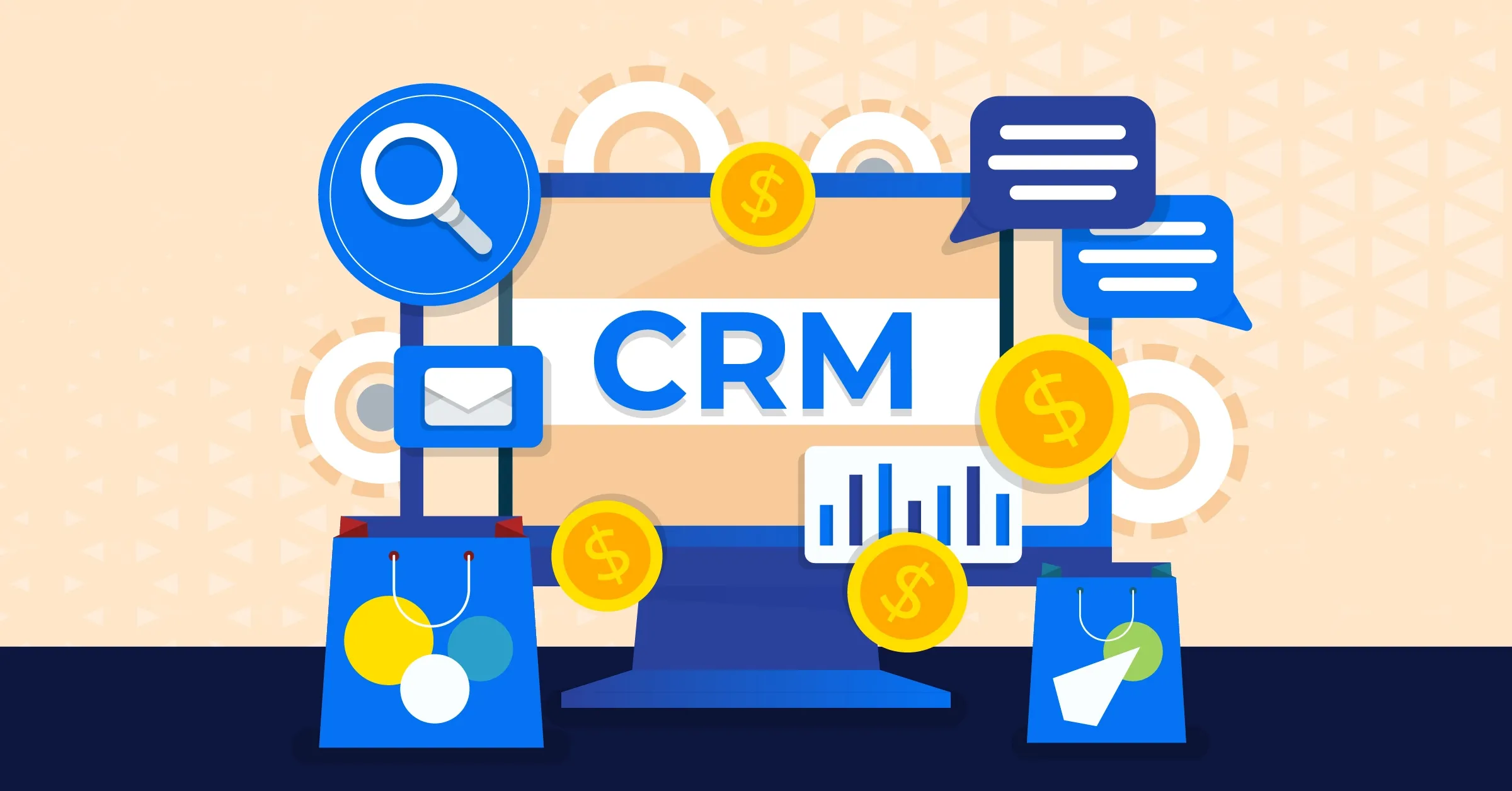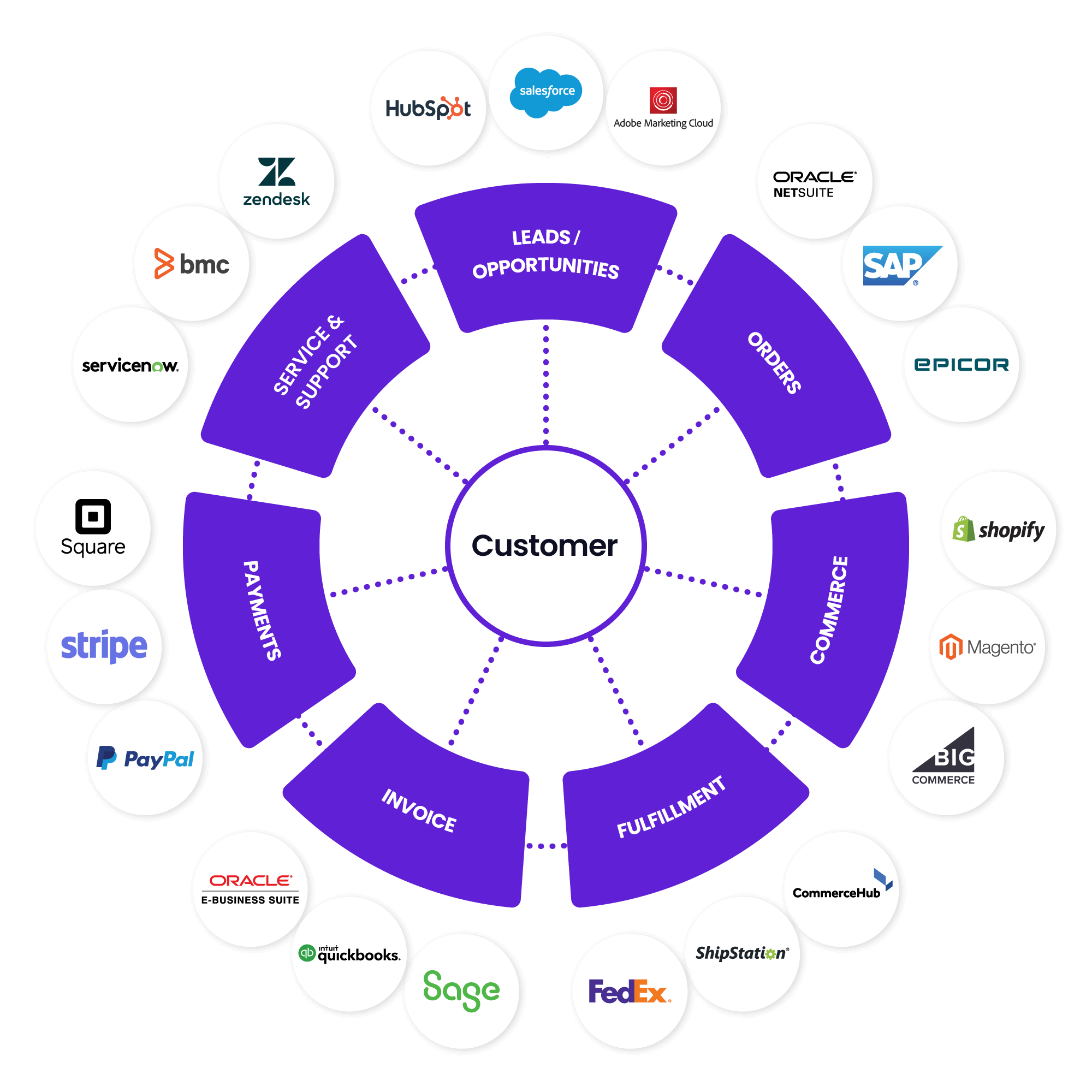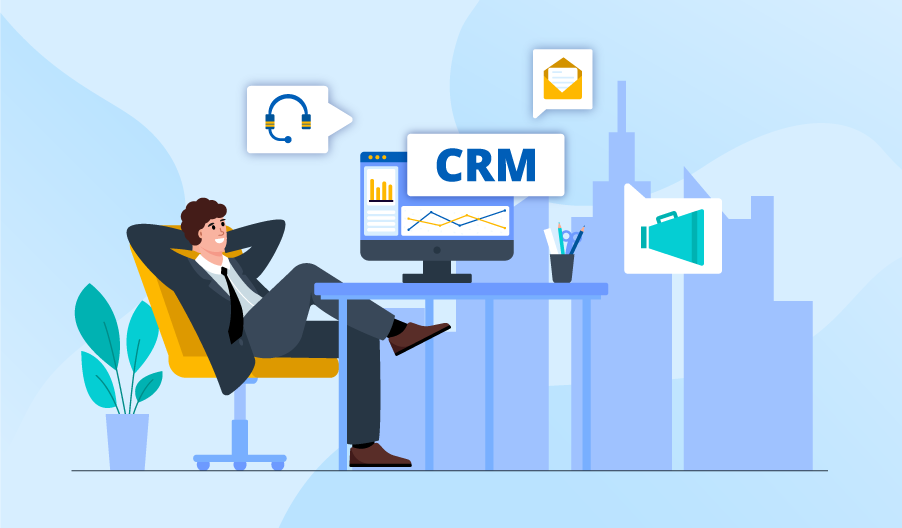In today’s rapidly evolving business landscape, managing customer relationships effectively has become more crucial than ever. As we approach 2025, enterprise CRM (Customer Relationship Management) systems have emerged as a game-changer for large organizations seeking to streamline their operations and enhance customer satisfaction. This comprehensive guide will delve into the world of enterprise CRM, exploring its benefits, selection process, implementation strategies, and future trends.
What is Enterprise CRM?
Definition and Scope
Enterprise CRM refers to a sophisticated suite of software applications specifically designed to manage, analyze, and improve interactions with current and prospective customers across large organizations. Unlike small business or mid-market CRM systems, enterprise CRM is typically more scalable and customizable, making it suitable for businesses with complex processes and large-scale operations.
In 2025, enterprise CRM systems have evolved to become even more powerful and intuitive, incorporating advanced technologies such as artificial intelligence (AI) and machine learning (ML) to provide unprecedented insights and automation capabilities.
Core Components of Enterprise CRM
- Sales Management: Facilitates the automation of sales tasks, lead tracking, and forecast accuracy. In 2025, AI-powered predictive analytics have significantly enhanced the ability to identify high-potential leads and optimize sales strategies.
- Customer Service and Support: Offers tools for managing customer inquiries, issue resolution, and service analytics. Modern enterprise CRM systems now include advanced chatbots and virtual assistants that can handle a wide range of customer queries, freeing up human agents to focus on more complex issues.
- Marketing Automation: Helps in designing, implementing, and tracking marketing campaigns across channels. The latest enterprise CRM solutions incorporate sophisticated personalization algorithms that can tailor marketing messages to individual customer preferences and behaviors.
- Analytics and Reporting: Provides detailed insights through data analytics, dashboards, and reporting capabilities. In 2025, real-time analytics and predictive modeling have become standard features, allowing businesses to make data-driven decisions with unprecedented speed and accuracy.
- Integration and Ecosystem: Modern enterprise CRM systems offer seamless integration with a wide range of third-party applications and platforms, creating a comprehensive ecosystem that covers all aspects of customer relationship management.

Benefits of Using Enterprise CRM
Enhanced Customer Relationships
Enterprise CRM systems are instrumental in creating a unified view of customer interactions, which enables businesses to personalize experiences and build stronger relationships. By having all customer data in one place, companies can anticipate needs and respond promptly to inquiries, leading to enhanced customer satisfaction.
For example, a large e-commerce company using enterprise CRM can track a customer’s browsing history, purchase patterns, and support interactions to provide tailored product recommendations and proactive customer service. This level of personalization can significantly improve customer loyalty and lifetime value.
Increased Efficiency and Productivity
By automating routine tasks such as data entry, scheduling, and follow-ups, CRM systems free up valuable time for employees to focus on more strategic initiatives. This automation minimizes human error and ensures that all processes run smoothly.
In 2025, advanced AI algorithms in enterprise CRM systems can even suggest the next best action for sales representatives or customer service agents, further boosting productivity and effectiveness.
Data-Driven Decision Making
With advanced analytics and reporting features, enterprise CRM systems provide actionable insights into customer behavior, sales trends, and market opportunities. This data-driven approach aids managers in making informed decisions that enhance business strategies and outcomes.
For instance, a multinational corporation can use its enterprise CRM to analyze global sales data and identify emerging market trends, allowing it to adjust its product offerings or marketing strategies accordingly.
Scalability for Growing Businesses
As businesses expand, their customer bases and operational needs grow. Enterprise CRMs offer scalability that can accommodate increased customer data and expanding teams without compromising performance or efficiency.
This scalability is particularly crucial in 2025, as businesses face rapid digital transformation and need to adapt quickly to changing market conditions.
Improved Collaboration and Communication
Enterprise CRM systems serve as a central hub for all customer-related information, fostering better collaboration between different departments such as sales, marketing, and customer service. This improved communication leads to a more cohesive customer experience and more efficient internal processes.
Selecting the Right Enterprise CRM
Assess Your Business Needs
Before selecting a CRM, identify key challenges and goals your business is aiming to address. Determine which areas—such as sales, customer service, or marketing—would benefit most from CRM implementation.
Consider conducting a thorough audit of your current processes and pain points. Involve key stakeholders from different departments to ensure that the chosen CRM system addresses the needs of the entire organization.
Evaluate CRM Features
Not all CRMs are created equal. Analyze various CRM solutions for features like automation, integration capabilities, user-friendliness, and mobility. Ensure the CRM provides solutions that align with your organizational processes.
In 2025, look for advanced features such as:
- AI-powered predictive analytics
- Natural language processing for improved customer interactions
- Advanced data visualization tools
- Robust mobile capabilities for remote work
- Built-in compliance and security features
Consider Integration Options
Enterprise CRMs should seamlessly integrate with existing tools and platforms used within your organization, such as ERP systems, email clients, and social media platforms. This integration is crucial for maintaining data consistency and improving workflow efficiency.
Look for CRM systems with open APIs and pre-built integrations with popular business tools. This will ensure that your CRM can easily connect with your existing tech stack and adapt to future needs.
Vendor Support and Community
The level of support from the vendor can significantly impact the success of CRM implementation. Choose a provider known for excellent customer service and with a vibrant user community for peer support and collaboration.
Research online forums, user reviews, and case studies to gauge the vendor’s reputation and the experiences of other enterprises using their CRM solution.
Cost Analysis
While functionality and features are essential, the cost is also a critical factor. Assess the total cost of ownership, including software licenses, implementation, training, and ongoing support costs to ensure it fits within your budget.
Consider both short-term and long-term costs, and weigh them against the potential ROI of implementing an enterprise CRM system.

Implementing Enterprise CRM Successfully
Employee Training and Adoption
For a CRM system to deliver its intended value, employees must be properly trained to use the software efficiently. Comprehensive training programs and easy-to-understand materials help in increasing adoption rates across the organization.
Consider implementing a phased training approach, starting with key users and gradually expanding to the entire organization. Utilize a mix of in-person training, online resources, and interactive tutorials to cater to different learning styles.
Data Quality Management
Having accurate and clean data within your CRM system is vital. Implement data management strategies to maintain the integrity of customer information and prevent inaccuracies that could lead to misguided decisions.
Establish clear data entry guidelines and use automated data cleansing tools to ensure consistency and accuracy. Regularly audit your CRM data to identify and correct any discrepancies.
Continuous Monitoring and Optimization
Regularly reviewing CRM usage and performance allows organizations to optimize processes and functionalities. Continuous monitoring helps identify areas for improvement and ensure the system evolves alongside business needs.
Set up key performance indicators (KPIs) to track the success of your CRM implementation. These might include metrics such as user adoption rates, customer satisfaction scores, and sales productivity improvements.
The Future of Enterprise CRM
AI and Machine Learning Integration
As we look towards 2025 and beyond, the integration of AI and machine learning in enterprise CRM systems is expected to accelerate. These technologies will enable more accurate predictive analytics, personalized customer interactions, and automated decision-making processes.
For example, AI-powered CRM systems might be able to predict customer churn with high accuracy and suggest proactive measures to retain at-risk customers.
Enhanced Customer Experience Management
Future enterprise CRM systems will likely place an even greater emphasis on holistic customer experience management. This will involve integrating data from multiple touchpoints to create a seamless, omnichannel customer journey.
Advanced sentiment analysis tools might be used to gauge customer emotions in real-time during interactions, allowing for more empathetic and effective customer service.
Blockchain for Data Security and Transparency
As data privacy concerns continue to grow, blockchain technology may be incorporated into enterprise CRM systems to enhance data security and transparency. This could provide a tamper-proof record of customer interactions and transactions, building trust and ensuring compliance with data protection regulations.
Conclusion
Enterprise CRM systems have become indispensable tools for large organizations seeking to manage customer relationships effectively and drive business growth. As we move towards 2025, these systems are evolving to incorporate advanced technologies like AI, machine learning, and potentially blockchain, offering even more powerful capabilities for businesses.
By carefully selecting the right enterprise CRM system, implementing it effectively, and staying abreast of future trends, organizations can position themselves for success in an increasingly competitive and customer-centric business landscape. The investment in a robust enterprise CRM solution is not just a technological upgrade—it’s a strategic move towards building stronger, more profitable customer relationships in the digital age.
As you embark on your enterprise CRM journey, remember that success lies not just in the technology itself, but in how well it aligns with your business processes and organizational culture. With the right approach, enterprise CRM can be a powerful catalyst for transformation, driving your business towards new heights of customer satisfaction and operational excellence.
